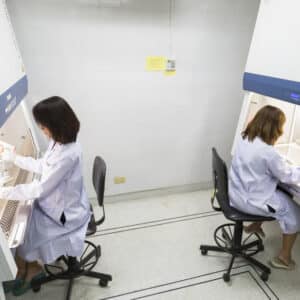The health sector, by its very nature, covers a myriad of roles-from medical professionals across multiple disciplines, to nursing staff, support staff and a whole host of support and administrative roles.
In Ireland, the state health service, the Health Service Executive, is the State’s largest employer with multiple roles across a diverse range of disciplines covering medical care, mental health, dental health, public health, emergency care and associated jobs, to name but a fraction. A career in this sector is professionally and personally rewarding and demanding, necessitating a wide degree of skills at a very advanced level.
Health Sector jobs
To work in a medical or care setting, primarily you need to be interested in people and helping people through problems. You will often be the person helping them deal with trauma or distress. If you’re a medical professional and working in either a private or public capacity you will need vast degrees of resilience and empathy in dealing with the many different cases that present themselves, seeking your help.
The hours for doctors, particular at a junior level, can be extremely demanding and there can be a lot of stress involved. However, like any role, you will gain the experience you need and your career can then take a more specialised role. As you advance, you can use your skills in a more stable setting, with hours more to your choosing.
If you’re working in a laboratory, scientific or administrative role, the hours will not be as demanding but you will be working in a diverse, workload driven environment. Delivering an excellent level of service is vital in ensuring you are providing the right support to front-line medical professionals. Nursing-based roles are most commonly associated with demanding hours and demanding conditions. In the vast majority of sites within the health service this is indeed the case, with nurses providing a vital support service to all front-line medical personnel.
Specialised positions
For most specialised medical positions, particularly at doctor level, and above, you will need a specific set of third level qualifications, an undergraduate degree and also a postgraduate qualification in a particular specialism or discipline. Those who wish to convert into the medical system via other streams must undergo rigorous assessment, naturally. There is an alternative route is available into the system via the GAMSAT (Graduate Australian Medical Schools Admission Test), the results of which will determine if you are eligible to proceed to study medicine.
Healthcare systems
Of course, it’s not just hospitals that provide employment within the medical system. There are a range of roles in dentistry, dental nursing, and community-based healthcare outlets. If it’s a state-funded establishment, recruitment is done via the Public Appointments Service, otherwise it’s done privately. If you have the qualifications, you will be expected to have done a sizeable portion of work experience in your chosen area. There are also a host of opportunities available in maternity hospitals and within the discipline of midwifery.
At some point, everybody is dependent upon the medical profession to some degree. Some careers in the sector require a higher amount of medical, scientific and technical knowledge than others. A surgeon will need more skills than a paramedic, for example, but they both need to be trained to the highest level in their field in order to provide the best service to the patient at any given time. Surgeons or doctors could not adequately treat people without the support of nurses, anesthetists, paramedics and many more people, including medical scientists. This lab-based role is essentially the data science of medicine, except you’re dealing with far more precious data in the shape of human DNA, tissue or blood samples. Ensuring the right results are essential in shaping the right prognosis and giving the best to the patient in terms of the care that they can receive.
Skills required
In terms of hard and soft skills, the medical sector obviously demands plenty of both. Hard skills are literally essential in the shape of medical knowledge, but also vital is collaborative and teamwork skills. Successful patient care requires a cooperative, multidisciplinary approach.
This is just a very broad introductory overview of the many areas in which you can work within the medical sector and make sure you do detailed research of your chosen area of interest; there are many jobs, both in Ireland and overseas, constantly advertised for medical professionals. It is truly a global discipline, albeit one that is regulated strictly from country to country.
Visit the Health Service Executive website and the websites for the various major hospitals to see what roles are on offer.












Comments